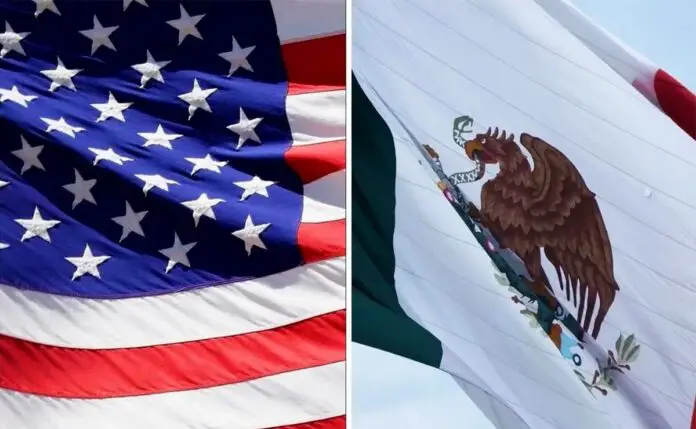In a climate of escalating tensions between the two nations, President Claudia Sheinbaum Pardo’s administration appears to be adopting a defensive stance in response to the partial or general application of tariffs by the United States as punishment for Mexico’s alleged role in organized crime. This shift in strategy comes as the bilateral relationship has been strained since April 2.
The root causes of this crisis lie in the vastly different approaches to national security adopted by Washington and Mexico City. On one hand, Mexico’s national security is inextricably linked with that of the United States, yet the Mexican government requires a degree of autonomy to address its unique geopolitical realities. As a dominant global power, the United States has a distinctly imperialist doctrine, whereas Mexico is driven by nationalist ideals.
Conversely, the two nations are intricately interconnected through their shared economic interests. The failure of Mexico’s successive governments to develop a national development model since 1993 has led to an over-reliance on neoliberal policies, making it vulnerable to external pressures. The North American Free Trade Agreement (NAFTA) has perpetuated this dependency, with the trilateral treaty being gradually replaced by new economic policies in Washington.
Experts warn that Mexico’s failure to adapt its national security doctrine to align with US concerns would be a strategic blunder of monumental proportions. President Trump’s decisions on tariffs do not signify an attack on the US economy but rather a shift towards a more nationalist economic policy, which is beginning to dismantle globalization and favor domestic markets.
To date, Mexico has focused on attempting to prevent Trump from taking decisive action to rebuild its national economy while neglecting the critical aspect of national security in bilateral relations. This area represents a vital link between market economies and social stability for both nations, with the globalization treaty serving as an irritant.
A key point of contention lies in the differing approaches to national security adopted by Washington and Mexico City. Attorney General Alejandro Gertz Manero highlighted these differences when discussing terrorism and its varying legal conceptualizations between the two countries.
The application of “narco-tariffs” by Washington has made it clear that the US government expects concrete commitments from the Mexican administration to dismantle the infrastructure of organized crime in Mexico, which is responsible for smuggling fentanyl and other illicit substances into the United States.
In response, the US has taken significant steps to combat drug trafficking in Mexico, including deploying spy planes and ships, CIA agents, high-level officials, an ambassador with pro-consular powers, and a naval blockade to prevent waterborne narcotics trafficking. This approach represents a fundamental shift in national security policy championed by President Trump.
Given the gravity of this situation, it is essential that Mexico’s national security doctrine evolves to incorporate US concerns, particularly considering the pivotal role played by the 3,200-kilometer Mexican border as a red line for Washington’s national security sovereignty. While this approach may be unpalatable in some quarters, it represents a pragmatic response to the shifting landscape of national security priorities.
Ultimately, Mexico’s success or failure to adapt its national security doctrine will determine the boundaries between nationalism and sovereignty, with far-reaching consequences for the bilateral relationship and regional stability.
Source: Debate




